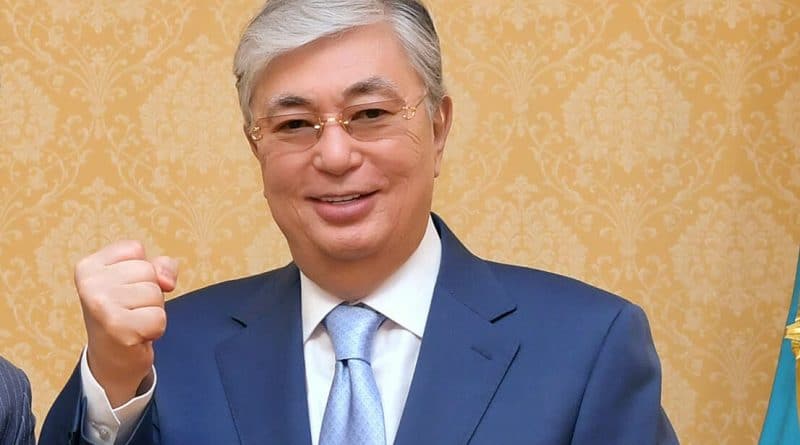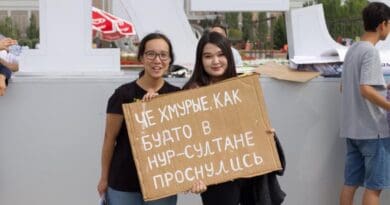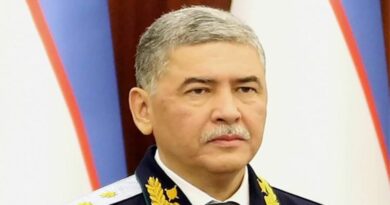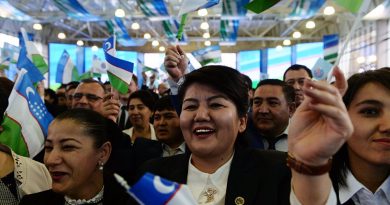The President of Kazakhstan promises revolutionary legislative reforms
With the new president coming to power in Kazakhstan, it seems like the time has come for a political and socio-public thaw, about which the country’s population dreamed for many years. It’s interesting that the representatives of active civil society, who joined the National Council of Public Confidence (NCPC) under the President of Kazakhstan, pushed Kasym-Zhomart Tokaev to such radical changes.
The second meeting of the NCPC was held today in Nur-Sultan. It is noteworthy that it was held almost simultaneously with the meeting of the Supreme Eurasian Economic Council (SEAC) in St. Petersburg, which was attended by the heads of all SEAC’s member countries. Except Kazakhstan! The first President of the country, Nursultan Nazarbaev, went from Kazakhstan to St. Petersburg. And the current President stayed in Kazakhstan to participate in the NCPC.
For the population of the country, news from the NCPC were much more important than from the meeting of the SEAC, because Tokaev adopted a number of amendments to the current legislation proposed by well-known public and political figures of the country, who are the members of the Council.
Firstly, as political scientist Marat Shibutov (one of the NCPC’s members) said it was decided that Kazakhstan would accede to the Second Optional Protocol to the International Covenant on civil and political rights.
Recall that this protocol was adopted by the resolution 44/128 of the UN General Assembly on December 15, 1989.
This Protocol states that “no person under the jurisdiction of state, the member of this Protocol, will not be subjected to the death penalty” and that “each state-member should take all necessary measures to abolish the death penalty within its jurisdiction”.
As Shibutov noted, Kazakhstan’s accession to the Second Optional Protocol means that the death penalty as a punishment will be abolished.
It should be clarified that today the death penalty is not practiced in the Republic, since a moratorium was imposed on this type of punishment in 2003. However, this norm is nevertheless available in the Criminal Code and can be applied to all those sentenced to it one year after the end of the moratorium. People, who have committed crimes under such articles as “encroachment on the life of the first President of Kazakhstan – the leader of the nation”, “encroachment on the life of the President of Kazakhstan”, “terrorism”, “high treason in wartime”, “desertion in wartime” etc., can be sentenced to capital punishment. In total, there are 17 articles.
“It’s time to resolve issues that have been actively raised by our human rights defenders. The Ministry of Foreign Affairs is instructed to begin the process of acceding to the Second Optional Protocol to the International Covenant on civil and political rights”, Tokaev said at the meeting of the NCPC.
It should be noted that the proposal to abolish the death penalty was put forward by the well-known Kazakh human rights activist Zhemis Turmagambetova at the first meeting of the NCPC, held on September 6. By the way, over the years of independence in Kazakhstan, 536 death sentences were carried out.
Tokaev’s next announcement also caused great public joy. It is about decriminalizing slander. For many years not only local human rights defenders, but also international organizations demanded that the Kazakh authorities do this. Just recently, in an interview with ACCA, the president of the International Foundation for the Protection of Freedom of Speech “Adil Soz”, Tamara Kaleeva, expressed doubts that the amendments decriminalizing slander would be adopted.
“I made a decision to decriminalize the article “Slander” of the Criminal Code and transfer it to the Administrative Code,” Tokaev said. This means that people, accused of slander, will no longer be sent to prisons.
The third important news was that the President intends to humanize the article 174 of the Criminal Code “The excitement of social, national, tribal, racial, estate or religious strife”.
“It is proposed to humanize this article, to amend the existing edition, to state it more correctly. For example, to disclaim the wording excitement and use the more precise legal concept of fomentation”, the President said. “Democracy should serve development and creation, not disunity and collapse.”
The population of the country will have significant changes. The organization and holding of rallies is planned. Today, the country has a norm according to which for holding a rally or a protest action, citizens have to receive permission in advance from local executive authorities. As a rule, such permits are practically not issued, as a result of which law enforcement agencies always have a legal opportunity to detain dissatisfied people and even put them in jail. But it seems that this practice is coming to an end. According to Tokaev, he intends to abolish this rule.
“We are taking a serious step in the field of reforming the current political system. The first package of political initiatives was strengthened by the state. We should begin to introduce the notification principle of the organization of meetings, which is in accordance with our Constitution. Any rallies are permissible if they do not violate the law, do not violate public order and do not interfere with the peace of citizens. The time has come to cultivate in the public consciousness a culture of rallies. Rallies are not only a right, but also a responsibility. A draft law on peaceful assembly has been developed. This is not just about changes to the current law, but about a conceptually new law that regulates the organization and conduct of all forms of peaceful assembly,” the President of Kazakhstan summed up.
Recall that in early November, the international organization Human Rights Watch (HRW) called on the governments of UN member countries to force Tokaev to fulfill the promises that he made in his inaugural speech.
“He promised that his government would reform Kazakhstan’s restrictive protest law by the end of the year, and called on local authorities to allow protests,” the HRW statement said. In his annual message to the people of Kazakhstan in September, he promised to strengthen the protection of human rights and to carry out “deep reforms of the judicial and law enforcement systems”.
It remains to state that there is still time before the end of the year and, therefore, the President of Kazakhstan has fulfilled his promises.
Recall that the NCPC was created by decree of the President Tokaev in order to establish a public dialogue between the government and society. The structure of the NCPC included 41 people. They are representatives of various fields: political scientists, economists, lawyers, public figures and bloggers. Within the framework of the National Council, several working groups have been created, such as on political reforms, on issues of language and culture, on social policy, etc.




